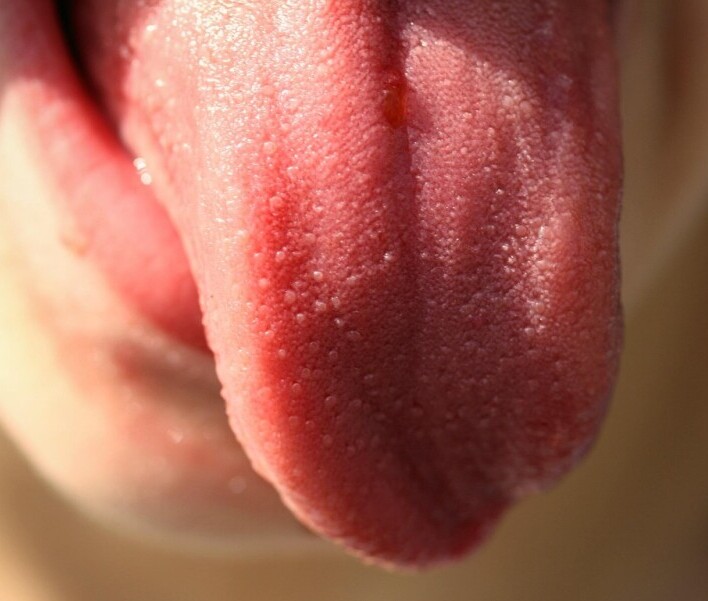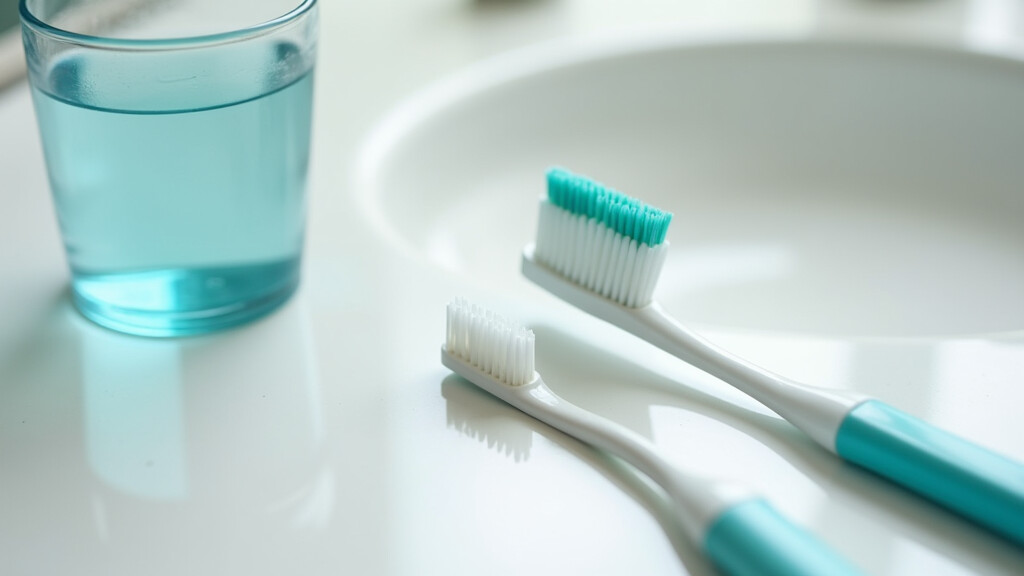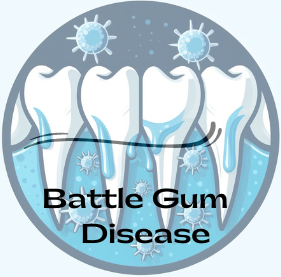Tongue cleaning is one of those steps in oral hygiene that a lot of people skip, but it can make a surprising difference to how healthy your mouth feels. In my experience, adding tongue cleaning into my morning and nighttime routine has helped me feel like I’m starting and ending each day with a clean mouth. If you’ve ever noticed a weird taste or even just want to step up your dental game, learning about tongue cleaning is totally worth your time.

Why Cleaning Your Tongue Matters
Your tongue is basically a giant sponge for bacteria, leftover food particles, and dead cells. Unlike your teeth, which you (hopefully) brush twice a day, the tongue often gets ignored. But just because you can’t always see what’s lurking there doesn’t mean it’s not affecting your overall oral health.
The surface of your tongue is covered in lots of tiny bumps and grooves, called papillae. These are really good at trapping all kinds of gunk throughout the day. This makes your tongue a prime spot for bacteria growth. If these bacteria aren’t regularly cleaned away, they produce waste and sulfur compounds. That’s the main culprit behind morning breath and sometimes more persistent bad breath.
I’ve noticed that after a few days of skipping tongue cleaning, everything starts to taste a little off, and my breath just doesn’t feel as fresh. The difference after giving my tongue a quick scrape in the morning is honestly significant; it’s like getting rid of a layer of junk I didn’t even realize was there.
The Effects of Not Cleaning Your Tongue
Skipping this step might not seem like a big deal, but the side effects can pile up before you know it. Not cleaning your tongue regularly can lead to a few annoying, and sometimes embarrassing, problems.
- Persistent Bad Breath: This is probably the most noticeable issue. The bacteria and debris stuck to your tongue give off unpleasant odors. Even if you brush and floss well, you might still end up with not-so-fresh breath.
- Changes in Taste: I’ve noticed that if I don’t clean my tongue, foods I normally love start tasting bland or odd. All that buildup dulls your taste buds, so things don’t taste the way they should.
- White or Discolored Tongue: Sometimes, your tongue starts to look white or coated. This isn’t just cosmetic; it’s a sign that bacteria and gunk have been hanging out for too long.
- More Plaque and Gum Problems: Bacteria from the tongue can travel to your teeth and gums, fueling plaque growth and even sore, inflamed gums.
Skipping tongue cleaning for weeks or months on end can give bacteria more time to thrive, making issues like oral thrush or more serious gum irritation more likely. The fix is very simple, though; a quick scrape or brush once or twice a day does the job. And building the habit early can help prevent these problems from the beginning.
Is Using a Tongue Cleaner Really Necessary?

I get asked a lot if you actually need a separate tongue cleaner or if your toothbrush alone does enough. Here’s what I’ve found from my research and from reading recommendations by dental pros:
Your toothbrush can do some of the work, but a tool made for tongue cleaning (like a tongue scraper or a soft silicone brush) does a better job at scooping away buildup. After trying both, I found that a dedicated tongue tonguescraper lifts more bacteria and junk off the surface than just brushing alone. There’s something oddly satisfying about seeing how much gunk comes off, too; not exactly a dinner conversation, but it proves the scraper works.
- Tongue Scrapers: Usually made from metal or plastic, they’re shaped to slide smoothly across your tongue and grab onto debris and bacteria. They’re pretty cheap and last ages if you rinse them well.
- Tongue Brushes: Look kind of like a mini version of a regular brush, sometimes with silicone bristles. They can help massage your tongue and loosen stuck particles.
Research found that tongue scrapers are more effective than toothbrushes at reducing odor-causing compounds. If you don’t have a scraper handy, using your toothbrush is still a lot better than doing nothing. But if you’re chasing maximum freshness, a tongue cleaner really is worth the couple bucks it costs. Just add a quick scrape to your normal routine.
What Happens If You Don’t Clean the Back of Your Tongue?
If you’ve ever looked at your tongue closely, you’ll see the back part often looks more coated or yellowed than the tip. That’s because the rear section catches tons of bacteria, food residue, and dead cells, especially overnight.
Not cleaning the back of the tongue means you’re leaving a huge amount of debris right where it has the most impact on your breath. I’ve found that if I only clean the front or middle, bad breath comes back faster. The back of the tongue is also tricky to reach, which is why it’s more likely to be missed during brushing.
This leaves a reservoir for bacteria. Even if your teeth and gums are clean, bacteria in the back of your tongue can quickly recolonize your whole mouth. Strong odors linger there, and it’s a common hotspot for tongue coating and even infections like oral thrush, especially if you’re on antibiotics or have a dry mouth.
To make cleaning easier, I just stick my tongue out and gently start the scraper at the back, then work toward the front in one or two smooth motions. It can trigger your gag reflex at first, but with slow practice, it becomes an easy habit. Just rinse the scraper every pass to get rid of what you lift off.
How to Properly Clean Your Tongue: Step-by-Step
If you’re wondering how to properly clean your tongue, here’s my step-by-step method for tongue cleaning:
- Start with a clean scraper or dedicated tongue brush (don’t use the one you brush your teeth with; bacteria can stick around).
- Stick your tongue out as far as is comfortable, and place the scraper as far back as you can manage without gagging.
- Gently but firmly pull the scraper or brush forward along the surface; don’t press too hard.
- Rinse off the tool and repeat a few times until there is no more gunk on your tongue.
- Finish by rinsing your mouth out with water, and give the scraper a good clean before you put it away.
I find that doing this once in the morning and once before bed is enough, though some people like an extra scrape after meals too. Start slowly, especially if you’re not used to the feeling; the results are worth it!
It’s important to mention that consistency makes a big difference. Tongue cleaning is about creating an easy, healthy habit. You may even notice fresher breath or improved taste in just a few days. And if you’re curious about trying out different cleaners or brushing tips, don’t be afraid to track down products that feel right for you.
Things You Should Know Before Adding Tongue Cleaning to Your Routine
Like any healthy habit, there are a couple of points to keep in mind when starting out:
- Gentle Pressure: Don’t go overboard or scrape too hard. Your tongue is sensitive, and gentle motions are plenty effective for removing buildup.
- Tool Choice: Metal scrapers are the most durable, but if they feel too harsh, there are softer plastic or silicone versions. Pick what feels comfortable for you.
- Keep It Clean: Always rinse your tongue cleaner well between uses and replace plastic tools regularly to avoid bacteria buildup.
- Watch for Discomfort: If your tongue feels sore or starts to bleed, you’re probably scraping too hard. Mild redness right after scraping is normal, but ongoing pain is a sign to ease up.
- Talk to Your Dentist: If you notice white patches, pain, or any changes in how your tongue looks that don’t clear up with cleaning, it’s a good idea to check in with your dentist. You can also ask about other ways to keep your tongue healthy, especially if you have specific concerns.
My Tips for Making Tongue Cleaning Part of Your Daily Routine
Tongue cleaning is a lot easier if you remember to do it at the same time as brushing and flossing. I just leave my scraper by my toothbrush so I can’t forget it. The habit is quick (it takes less than a minute), but the payoff for your breath and overall mouth health is really noticeable. If you want to keep your whole mouth clean, adding this one extra step is a no-brainer.
Frequently Asked Questions
Why is cleaning your tongue important?
Cleaning your tongue reduces the amount of bacteria, food debris, and dead cells sitting in your mouth, minimizing unpleasant breath, improving taste, and supporting better dental health overall.
What happens if you don’t clean your tongue?
You might notice persistent bad breath, a coated or discolored tongue, more plaque, or even changes in taste. Neglecting tongue cleaning can also make you more likely to develop oral infections.
Is it necessary to use a tongue cleaner?
A tongue scraper or dedicated tongue brush works better at removing oral debris compared to just using your toothbrush. Using one isn’t absolutely required, but it’s a really quick and effective upgrade for daily oral care.
What happens if you don’t clean the back of your tongue?
Most odor-causing bacteria build up at the back of your tongue, so if you skip this spot, bad breath can stick around and bacteria can keep spreading throughout your mouth. Reaching the back, even gently, makes a big difference.
Why Tongue Cleaning Deserves a Spot in Your Oral Care Routine
Regular tongue cleaning supports every part of your oral health, not just fresher breath. Making it a habit keeps your taste sharper, your mouth healthier, and your daily routine feeling just a bit better. It’s an often overlooked tool that’s easy to add and delivers a really noticeable upgrade to your smile and confidence. Really, there’s no downside; it’s quick, affordable, and helps out with your oral health more than you might expect. If you’re looking for a fresh start every morning, a tongue cleaner can give you that clean feeling you’ve been missing. Give it a try and see the difference for yourself!
